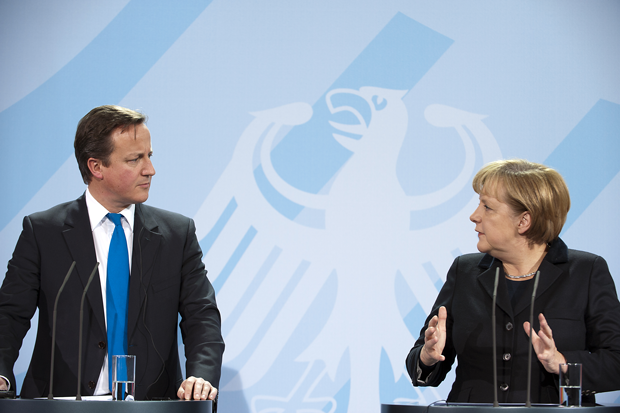Index relies entirely on the support of donors and readers to do its work.
Help us keep amplifying censored voices today.

(Illustration: Shutterstock)
In the 1970s, mass surveillance was seen as especially a Cold War thing – what the Soviet bloc did to its own citizens, while also spying on the West. The West ‘only’ targeted a few Soviet spies and perhaps some left-wingers too — but mainly focusing on the Soviet Union and its satellites. From phone taps to opening letters, to directly observing someone, mass population surveillance was certainly undertaken by the Stasi and others, with their armies of informers. But mass snooping was not seen as a domestic concern or risk at home in the West.
Today and every day, we leave our digital footprints all over the place. Our digital trail is collected by telcos, web hosts, social media and others. And as the Snowden/NSA revelations have shown, our data is especially hoovered up from all these sources and more by the US, UK and other governments – covering millions of people around the world.
Prism, Tempora and other programmes indicate a major intelligence dragnet that surely constitutes mass surveillance, with little legal justification, and one that invades and undermines our right to privacy and our freedom of speech – since if everything we write, say and do is recorded and collected then how we behave as individuals and social animals surely changes.
Not so say some. Mass data retention isn’t snooping and surveillance until you analyse it and use it – and then there are various laws that allow targeting of suspicious individuals or groups. After all, if companies like Google, Facebook and Yahoo accumulate masses of our data, and analyse it for advertising purposes, then why should we worry that governments hoover up our data too?
This is a slippery argument and worth unpacking. If a government and its intelligence services want to spy on their own or another population, there is very little transparency and accountability as to how they do that, or what the legal justification, if any, is – and as the underwater cable taps by GCHQ indicate, often with very little need to approach the web hosts or anyone else to ask permission to intercept data.
Mass surveillance needs various elements to work for those carrying it out. You need to collect the data, analyse it according to your interests and needs, and then act on it in some way. For sure the Stasi, like authoritarian regimes and actors today, also understood well that even the act of collection could be, and was intended to be, chilling and fear-inducing.
But what of the US or British or French governments today? Is their collecting of data on all of us – around the world not just their own populations – just big data, to be used for targeted analysis? Or is it an inevitably chilling act, on the basis of which fishing expeditions are carried out, groups and individuals are identified on a large scale as potentially suspicious through the data analysis, and further monitoring and arrests, through to extraordinary rendition or drone attacks, may be the follow up.
The huge quantities of data collected on us in one programme – such as Tempora – can be analysed to build a multi-dimensional picture of our individual personal lives. And with little or no transparency as to who can access the data, or how the analysts are themselves monitored and regulated.
Mass data collection on all our digital communications challenges our rights to freedom of speech and privacy, and more broadly puts at risk our democracy – how can governments be held accountable, if journalists’ sources are no longer anonymous or campaign groups are fully monitored?
The huge overreach by the US and UK governments in deliberately collecting up our data around the world has set up the framework and data for mass surveillance. It’s a core part of monitoring us all. If we are to stop it, then we have to stop the reckless hoovering up of our data (to an extent that puts companies in the shade) and return to a more proportionate and targeted approach.
Mass data retention is a central element in mass surveillance. It needs to stop.
There have been some sharply contrasting political reactions to the US and UK’s mass surveillance programmes in European countries in recent days. Could the US perhaps play divide and rule in managing the fallout from Snowden’s revelations in Europe? Or is there enough common ground between German, UK or even Russian politicians to push for real changes in US (and UK and French) snooping?

(Photo: Gonçalo Silva / Demotix)
At first glance, it seems the issue is being damped down in the UK in contrast to angry and sustained political debate in Germany, and a more nationalist and opportunistic response by Russian politicians.
Last week British MPs on parliament’s intelligence and security committee confirmed that GCHQ, the UK’s signals intelligence HQ, had indeed obtained intelligence from the US Prism programme. But they concluded, remarkably quickly (no long investigation here), that allegations of law-breaking were “unfounded”. Whether the MPs are right or not, their report in fact only concerns part of Prism – the ‘content’ data GCHQ accessed and not the reams of metadata which can be equally or more revealing about individuals’ activities; and it doesn’t touch at all on the so-called Tempora programme by which, according to Snowden, the UK has been accessing massive amounts of data, by tapping into underwater cables, on a scale that goes beyond even US activities.
Meanwhile in Berlin last week, German politicians on the Bundestag’s control committee – were demanding answers on the NSA revelations from interior minister Hans-Peter Friedrich, who admitted he was still trying to get enough information out of the US on the reach of American surveillance. The following day, German journalists grilled Chancellor Angela Merkel’s spokesman for an hour and half about what the German government and security services already knew about US snooping, and how they will stop it.
Merkel has called on Obama to respect German laws though adding, rather curiously, “on German territory” – snooping on Germans on servers in the US or as their communications pass through underwater cables are side-lined by this emphasis. Merkel is also pushing for action at EU level, promising she will demand much tougher EU data protection laws – due to be agreed in the coming months. Germany’s political response seems in a much higher gear than in the UK.
Over in Moscow, some Russian MPs too are emphasising safeguards to protect personal data from US snooping. But with demands for big companies like Google and Facebook to respect Russian laws and pass on user data when requested (just as they have been in the US), this is not a sudden shift to political support for digital freedom in Russia. It is simple political opportunism taking full advantage of the NSA’s activities and revelations to reinforce Russia’s determined attempts domestically and internationally to control, monitor and impede a free and open internet.
But German, British or EU criticism of Russia’s attacks on digital freedom will be ignored and labelled hypocritical unless there is a much stronger condemnation of mass surveillance from European leaders and action to limit future abuses. Nor is this simply about whether intelligence services are operating within the law (and whose laws) important though that is. It is about ensuring laws do not allow the sort of mass surveillance domestically and internationally that the NSA, GCHQ – and it would seem France too – have been carrying out.
Here the report from the MPs on the British intelligence and security committee potentially opens up a vital debate. Incautious language, the MPs say that existing legislation is “expressed in general terms” and that GCHQ itself was right to put more detailed practices into place to ensure compliance with UK human rights law. Crucially, though a studied understatement, they say that the “complex interaction” between UK human rights laws and security laws needs further consideration – and commit the security committee to investigate further.
So more digging will happen in the UK, in Germany – and too at EU level thanks to the efforts of the European Parliament.
But the UK is clearly as complicit as the US in mass surveillance. And there is growing and sharper questioning in Germany of how much the government and the security services previously knew about US and UK snooping.
So where new revelations and investigations will take European countries in the coming weeks is an open question. And whether we will see a united defence of digital freedom in Europe and an end to mass surveillance is at best unclear for now and, more probably, highly unlikely.
Kirsty Hughes is the CEO of Index on Censorship. She tweets @Kirsty_Index
The revelations that the United States allegedly spied on European Union diplomats marks a low in what should be a special relationship of trust between major democracies. The EU needs to remind the US that surveillance is unacceptable in the digital age.
The row was prompted by revelations published by German magazine Der Spiegel on its website this past Saturday. Relying on documents allegedly leaked by the former NSA-contractor Edward Snowden, the magazine said the NSA had surveilled EU, French, German and Italian diplomatic offices in Washington and at the UN.
Instead of reminding US authorities of the EU belief in an open and free internet, Catherine Ashton, the high representative of the EU for foreign affairs and security policy, focused on the specific press reports, calling them a “matter for concern”. The European Union needs to reiterate its well-established position that “global connectivity should not be accompanied by censorship or mass surveillance.”
But French president Francois Hollande demanded the US stop its activities “immediately.” Later, the BBC reported that Hollande threatened to derail US-EU trade pact negotiations over the bugging scandal.
Germany’s government summoned the US ambassador to explain his country’s actions. Steffen Seibert, spokeperson for Chancellor Merkel, said that Germany wants “trust restored. We will clearly say that bugging friends is unacceptable.”
French foreign minister Laurent Fabius demanded an explanation “as soon as possible” after labelling the alleged spying unacceptable.
Martin Schulz, president of the EU Parliament warned that the allegations, if true, would have a “severe impact on the relations between the EU and the US. He demanded a fuller account of the Der Spiegel reports.
Thomas Drake, a former NSA employee turned whistleblower, who was prosecuted under the US espionage act tweeted today that the alleged spying had “little to do with classic eavesdropping. Instead, it’s closer to a complete structural acquisition of data”.
Index CEO Kirsty Hughes said:
“As disagreement grows between the EU and the US over surveillance, Index on Censorship calls for the EU to take a lead in condemning mass surveillance – which the EU’s cyberstrategy already warns against. We are also calling on the US government to acknowledge that the mass surveillance of citizens’ private communications is unacceptable and a threat to both privacy and freedom of expression.”
Index on Censorship calls upon the US government to uphold the First Amendment. Whistleblowers such as Edward Snowden — as well as journalists reporting on the Prism scandal, who have come under fire — should be protected under the first amendment, not criminalised.
Index also condemns the alleged tapping of communications cables by the NSA and GCHQ, that would allow the mass surveillance of both meta data and content from individuals’ private communications.
Index CEO Kirsty Hughes said:
“The mass surveillance of citizens’ private communications is unacceptable – it both invades privacy and threatens freedom of expression. The US government cannot use the excuse of national security to justify either surveillance on this scale or the extradition of Snowden for revealing it.”